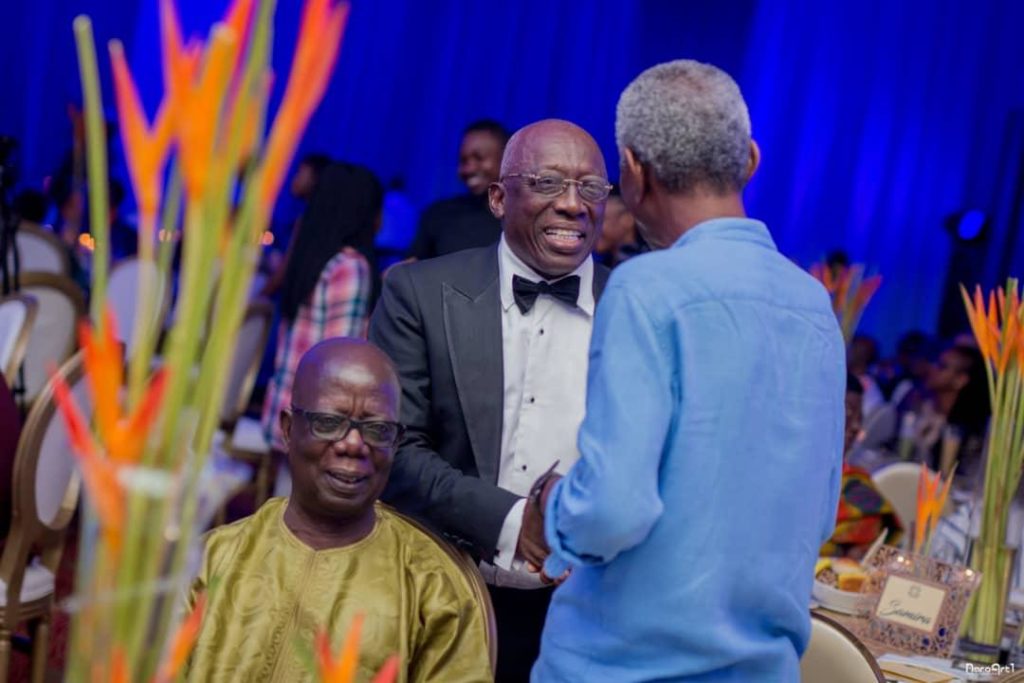Chief Executive Officer (CEO) of the Dara Salaam Group of Companies, Alhaji Yusif Ibrahim, has stated that but for an act of bad faith by the Ghana National Petroleum Corporation (GNPC), telecommunications giant, MTN would have been 40 percent Ghanaian-owned.
Until its recent Initial Public Offering (IPO), MTN was wholly-owned by South African nationals.
Speaking to Paul Adom-Otchere on Good Evening Ghana, following the launch of his autobiography, Alhaji Yusif Ibrahim said in the early 2000s, MTN

The deal would allow MTN to begin operations in Ghana, owning 60 percent of the company while 40 percent would be owned by Alhaji Yusif Ibrahim.
The company had already had massive success after setting up in Nigeria and was looking to expand to other markets.
“MTN was doing really good business in Nigeria, Nigeria had a lot of communication problems; you couldn’t make any call at all, it was a big problem. MTN went there and within a year, they changed all the communications and everything was working so they were looking for other areas to move into.”
WESTEL was facing competition at the time from Ghana Telecom and has expressed disappointment with alleged attempts by the government to aid the state-owned company by frustrating their own efforts.
ALSO READ: ACEP questions GNPC’s plan to spend $43m on Corporate Social Responsibility
With WESTEL’s parent company, Western Wireless, ready to sell its shares in the company, totalling 60%, MTN saw it as a golden opportunity to break into the Ghanaian market, according to Mr Ibrahim.

“Fortunately for me, Western Wireless, who owned Westel and had majority shares and were trying to sell their land because they were having problems with what is now Vodafone, at that time. There was a lot of competition and they got really disappointed because Vodafone, at that time, belonged to the government and they were being frustrated. I heard of it and went to discuss the possibility of them selling to me and they did dell it to me for an amount of $10m.
“Having those documents with me, I realised that MTN in South Africa were looking for a place in Ghana. I went to see them and they agreed with me for us to have a partnership to start operations in Ghana – 60% for them and 40% for me. We came back to Ghana to do the marketing to see whether it was viable. We did market surveys in Accra, Kumasi and Takoradi which was favourable.”
A deal had been agreed with Westel in principle but GNPC, who owned 30% of the shares in the company had the first right of refusal, prompting discussions between them and Mr. Ibrahim.
GNPC initially gave the deal a green light but eventually purchased the shares of Western Wireless, now owning 90% of the shares, with the remaining 10 percent owned by some private companies.
“GNPC had 30% shares in Westel and had the first right of refusal which they didn’t take up. We went to GNPC and talked to them about the possibility of getting into it and they said they didn’t have a problem as long as we made it work. Unfortunately, before we could do anything, they had gone behind us and bought the shares from Western Wireless in the US (60%).”
Mr Ibrahim believes that this intervention stalled the progress of Westel, which was eventually purchased by Bharti Airtel and recently merged with another telecommunications company, Tigo.
“Government should only be a facilitator and just chase the private sector for taxes in order to look at other developmental issues, not be rivals in business. If we had been left for the development of Westel, it wouldn’t be where it is now. It would have been where Spacefon or MTN is now. The South Africans would have had 60% of shares in MTN and a Ghanaian business would have owned 40%.”
He also stated that the initial deal with MTN would have been beneficial to Ghana’s economy, as having 40 percent Ghanaian ownership in the now billion-dollar company would have aided the cedi’s struggles over the years.
“Definitely, it would have helped the cedi because everything would have remained here, it wouldn’t go anywhere.”
Credit:
Edwin Kwakofi/citinewsroom



